The power of sport in London
The pandemic reinforced the importance of local sports organizations. They’re the ‘difference-makers’ and a major reason why London is firmly on the map as a sports city.
(Photo courtesy Tourism London).
Zanth Jarvis is a true believer in the power of sport, having witnessed its impact in better days, its struggles to survive a pandemic, and now, its possibilities for paving a way forward.
“Sport has such an important impact on people and communities – especially this one,” said the Director of Sport Tourism with Tourism London.
“When we were really in the thick of it, when everything was canceled, people were still trying to construct bubbles for sport. Sport was one of those things we just had to figure out as a way to provide something for people to cheer for. People just couldn’t go without it.”
* * *
He laughs today at the thought of his super optimistic self in 2019.
“Honestly, 2020 was destined to be a good year. We had the Ontario Summer Games coming up. We had a number of other smaller-yet-important events when it came to the ecosystem of sport tourism. We were geared up – and then …” Jarvis said.
It’s a story we’re all familiar with by now. Talk of outbreak across the ocean turned into a pandemic around the world and major impacts in our homes. For Jarvis’ team, they saw conference after conference, event after event get canceled. The rest of that year was about postponing events.
“Postponing – not canceling,” he stressed. “We wanted to make sure we kept those events on the books. We talked a lot about ‘postpone’ rather than ‘cancel’ and just tried to get them back a couple months later or even in 2021.”
That goal had its own unique set of challenges, however, as major events and conferences are booked years in advance. (That’s how London will end up hosting the 2020 Ontario Summer Games in 2024, with Mississauga already slated to host in 2022.)
Combine that with the uncertain landscape for the future and things got messy. That was how it went for months as Jarvis and his team rescheduled and juggled.
“It was chaos for that little bit there. Just trying to just sort out everybody’s calendars and try to do whatever we could,” he said. “We were all trying to sort out this big mess, especially when it came to the sport and tourism industry, which were just slaughtered by this, hit so hard. We’re still feeling the effects to this day.”
(Photo courtesy Tourism London).
* * *
As the pandemic wore on, much of the Sport Tourism office work turned internal to help save what community sport infrastructure remained standing.
“You saw some businesses closing, music venues closing, and then you saw some sport organizations on the verge of closing as well,” Jarvis said. “We really had to alter the work that we do. We can’t have these sport organizations just fold. If they do, then we can’t bid on or host events in that sport and then we don’t generate the tourism from those events. So, we moved to offering grants and trying to provide resources to them – anything we could do to help these organizations stay afloat.”
Perhaps people don’t understand the importance of local teams, clubs, boosters, and groups of all types in the bigger universe of sport.
When Skate Canada, Hockey Canada, or any sort of national sporting organization – known as NSOs – are deciding on where to host an event, the financial side of things is usually similar from city to city. But what sets one potential host apart from another is the local sport community, the volunteer community, the ability to sell tickets as a sign that it’s a community that supports the sport.
“These are the difference-makers,” Jarvis said. “That’s why it’s so important that we help these local organizations grow and develop a reputation for being a strong event host. We really try to build them from the ground up – try to host a regional event with them first, then a provincial event, then grow and grow from there.”
Take the World Figure Skating Championships hosted by London in 2013, for example. London would have never landed that event if not for the strength of our local skating community, Jarvis stressed.
“If we have these local sport organizations folding, we are closing the door on potentially hosting larger-scale events in that sport in the future,” he continued. “So, during the pandemic, we totally pivoted the way that we do business – rather than trying to get people from out of town to come in, we started trying to take care of what we had in town first and foremost before even worrying about any sort of tourism or events.”
* * *
Jarvis knows it will take years to fully recover.
As a service provider to local support organizations, businesses, and tourism organizations, Tourism London has tried to remain flexible in the last two years, listening closely to understand what issues these groups are struggling with, he explained.
“It’s about learning what’s up with the challenges these groups are faced with and trying to assist them in that aspect and also just continuing to bid on hosting and events for the future,” he said.
So, what’s the dream? The stretch goal?
“For us, it’s the World Juniors,” Jarvis said. “It’s never not on our radar. It’s always on our radar. We haven’t had conversations with Hockey Canada lately, but when the time is right and they’re ready to have that conversation again, we will be right there happy to do whatever we can to get that event here. That’s the dream; that's our Olympic Games. That’s the biggest thing we could ever do, and that’s the long-term dream that would just be the most amazing event.”
When you think about what London has accomplished in other areas, it doesn’t seem impossible.
Take the music scene, for instance. In 2019, London hosted the Juno Awards. Just two weeks ago, the city played host to the Canadian Country Music Awards. Those successful events, plus a host of smaller endeavours, certainly contributed to London being named a UNESCO City of Music in November, the first such city in Canada.
But for a music city, Jarvis said, this is also a heck of a sports town: fan-supported sport teams, high participation club teams, world-class facilities, top-tier athletes who compete for (and win) national and international titles – even Olympic medals. It all adds up to a heck of a pitch – and a lot of possibilities for the near future.
Reminders of the possibilities are everywhere. For instance, the physical legacy of the 2001 Canada Summer Games still echoes across the Forest City. Western Alumni Stadium (formerly TD Waterhouse Stadium) and Canada Games Aquatic Centre continue to crank out champions and provide athletic opportunities for the community.
(Photo courtesy Tourism London).
* * *
But don’t be afraid to look deeper, even beyond the capital projects and finances, Jarvis said.
“Oftentimes, the social side of things isn’t talked about as much. When we host these events, we need local volunteers. With the Ontario Summer Games, we have 800 local volunteers. The opportunities for (the community) to get engaged in an event like that is important. It provides that civic pride, an opportunity to be proud of London for hosting and welcoming the world or the rest of Canada into our city and showing it off,” he said.
“Sure, you can always look at the financial impact of an event, but the social impacts and the legacies that they leave on a community, you count on them being there, even if you don’t know exactly what they’re always going to be until realized years down the road.”
That means continuing to push and compete for the biggest events possible.
“In London, we punch above our weight. We’re always competing against Toronto, Ottawa, Montreal, Vancouver, Calgary, Edmonton. Those are top-tier cities and that’s the category we view ourselves in when it comes to events and hosting,” Jarvis said.
“We want to be aggressive in pursuing sport tourism events because we really think that economic impact is going to be a great way out of this pandemic. It’ll help restore normalcy or provide some economic impact to those industries and businesses that have been hurting for so long.”
AROUND THE PERIMETER
The London Lightning’s opening night opponent, the Sudbury Five, announced its coaching staff and eight players this week. Bolts alumnus Elliott Etherington has been promoted to head coach and general manager of the Five. The 28-year-old Chippawa, Ont., native joined the Five at the beginning of the 2019-20 season, after two years with the Lightning as associate coach and interim head coach, helping the team to an NBLC Championship. … Hey. There’s still time for you – yes, you – to make the local roster. The Lightning will be hosting a PRO ID Camp Sunday, Dec. 12, in Vancouver, for prospects for the upcoming NBLC season. Limited to 60 athletes. Register now. … Go get your season’s tickets. Come say ‘hi’ to your Gameday London correspondent if you get a chance. … In celebration of the 10th anniversary season of the NBLC and London Lightning, I am putting together a team of fans and insiders to contribute to a series of stories that will run throughout the season. Basically, I want to crowdsource some of my stories by drawing on knowledge and opinion of the team and its players over the last decade. It shouldn’t be just me saying who is what. Drop me a line at jason.a.winders@gmail.com, if interested.
BEYOND MY BYLINE
Just in time for the holidays, the London Majors will host a pop-up shop this weekend with jerseys, hats, T-shirts, championship gear, plus a special edition commemorative magazine from your friends at Gameday London. Pop over to the team store between 12-2 p.m. Saturday and Sunday at Labatt Park, 25 Wilson Ave. Cash only. … So, how do you play guitar like Peter Buck from R.E.M.? … Even if you aren’t watching ‘Succession’ on HBO, this profile of one of its stars is, um, interesting. Ever read a piece and pray you don’t get stuck in an elevator with them?
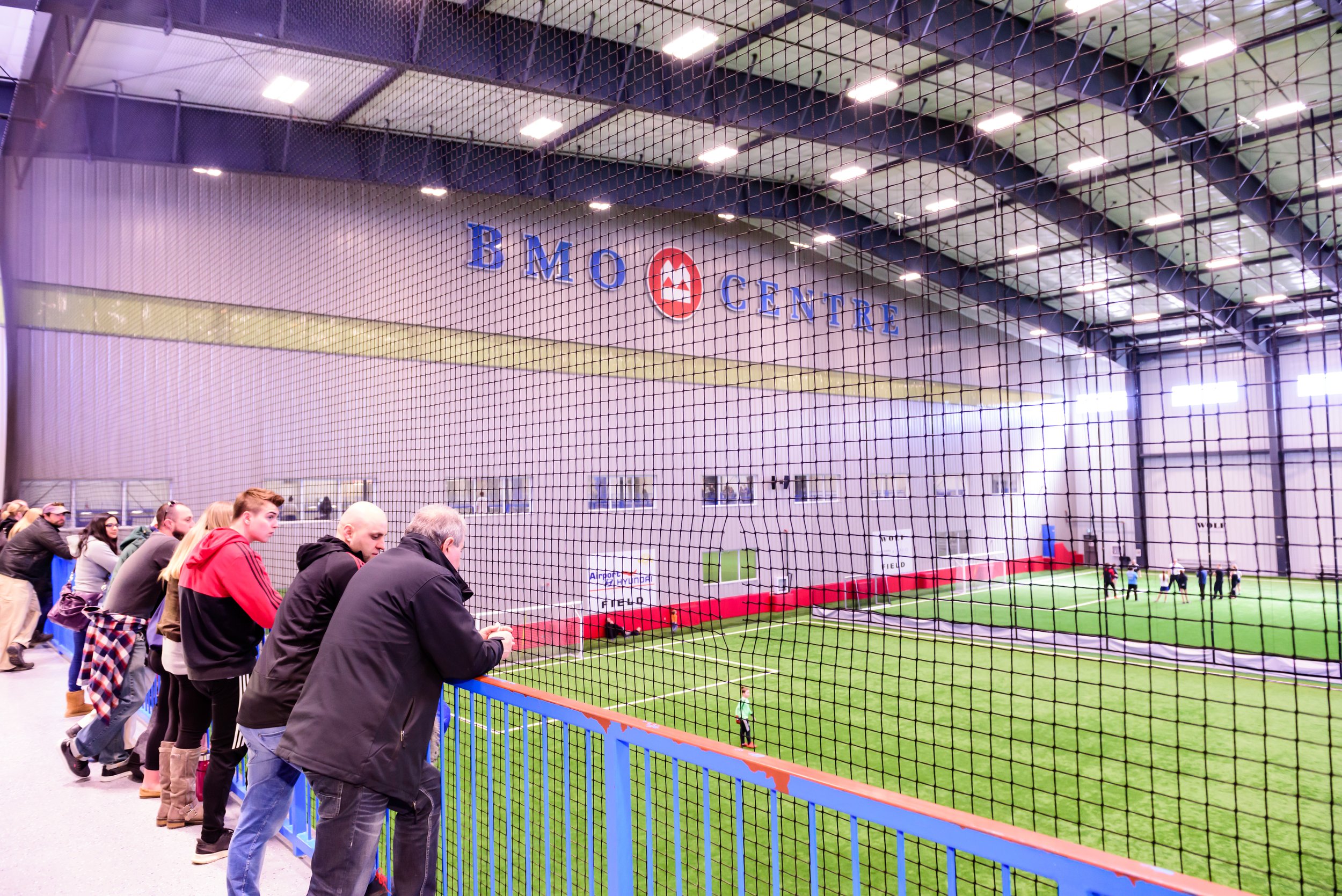




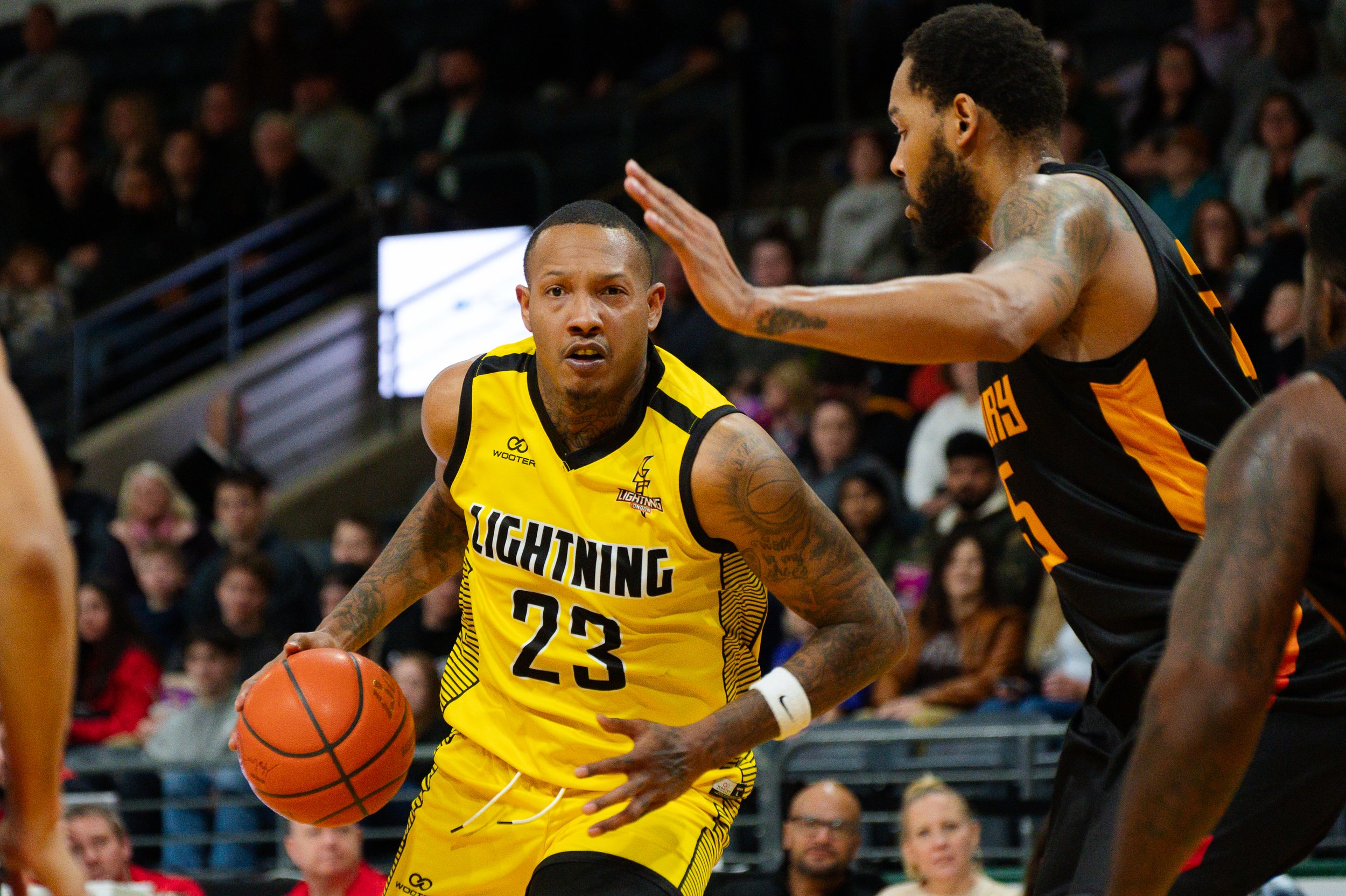

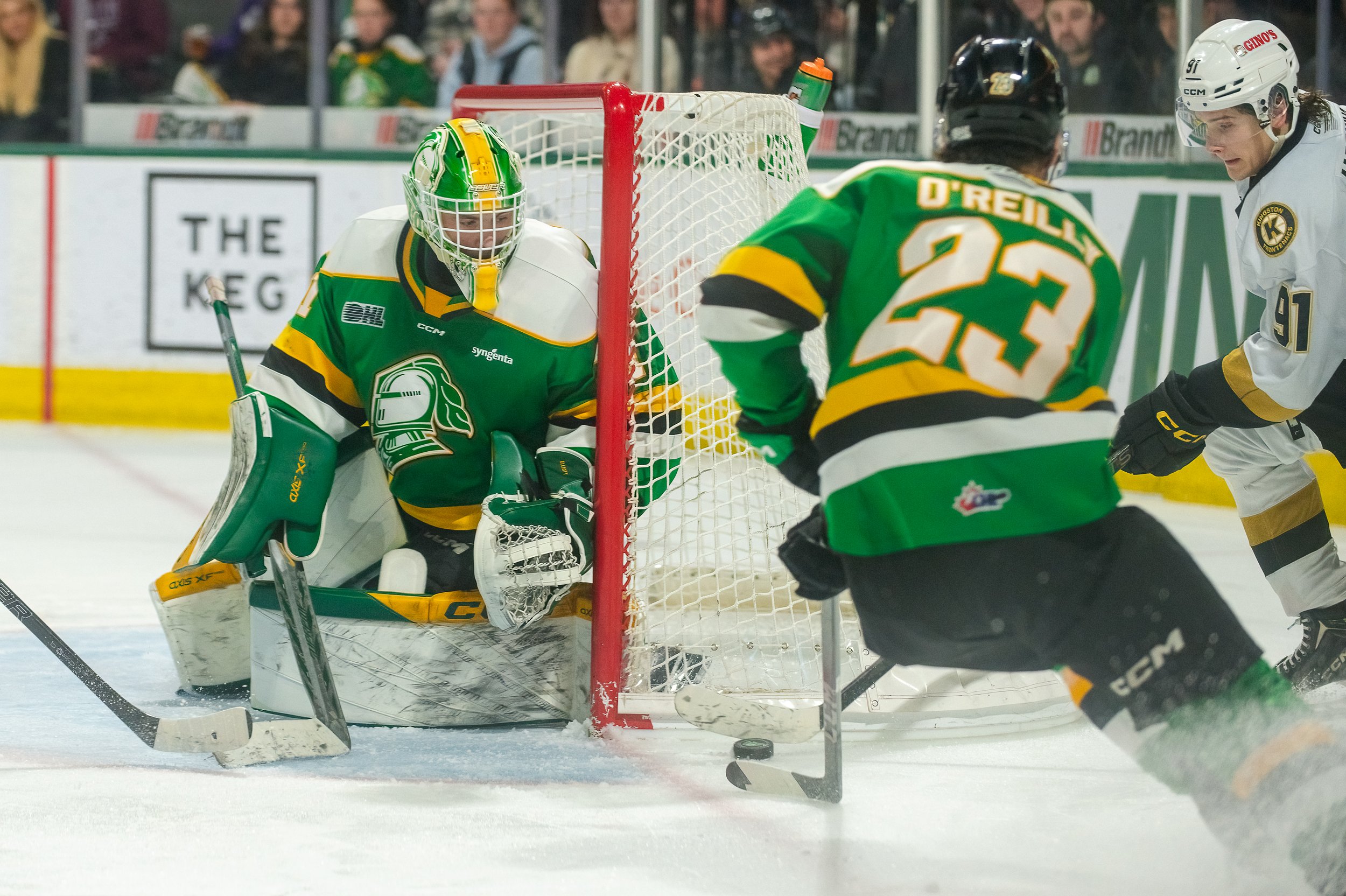
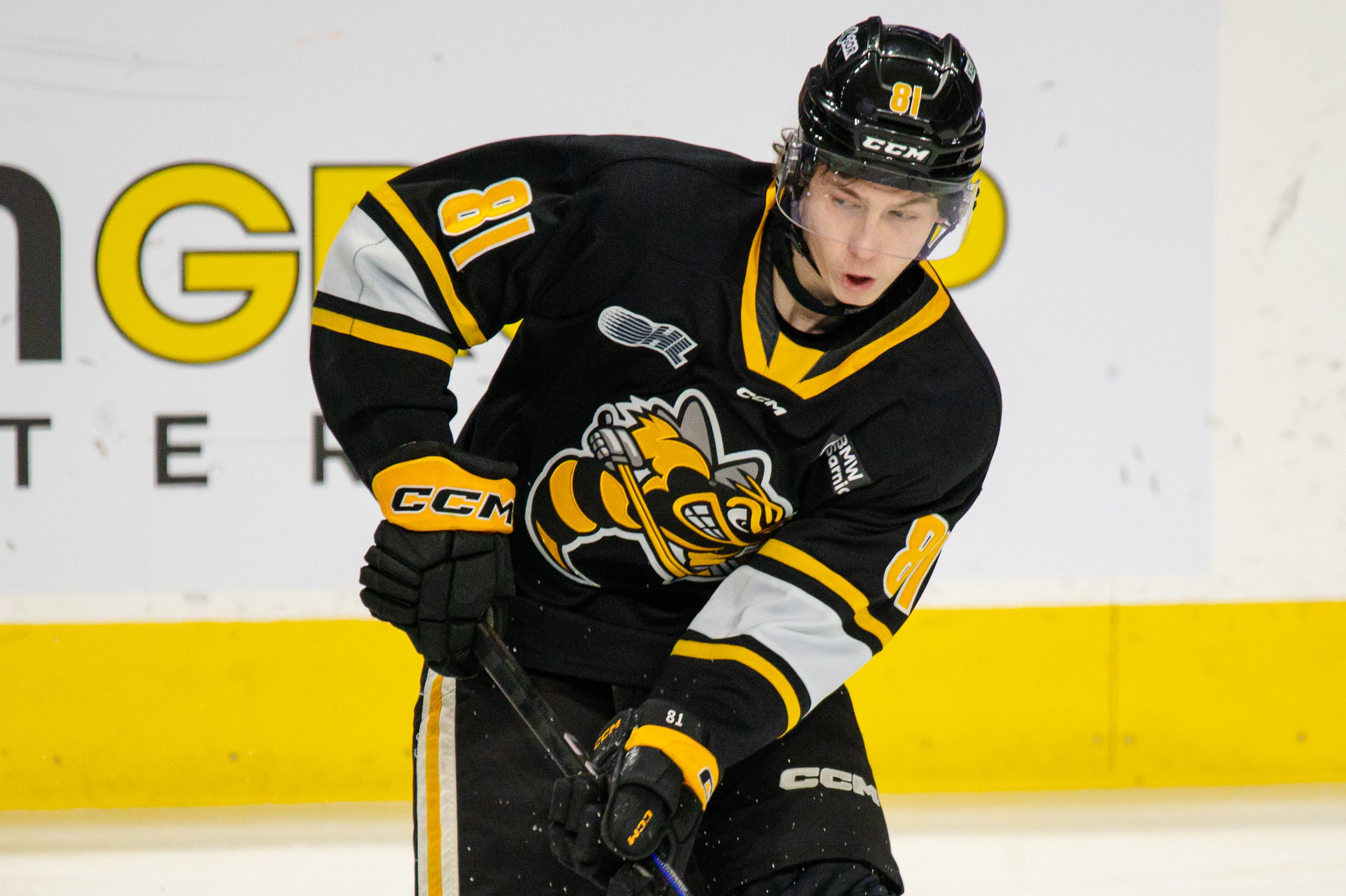

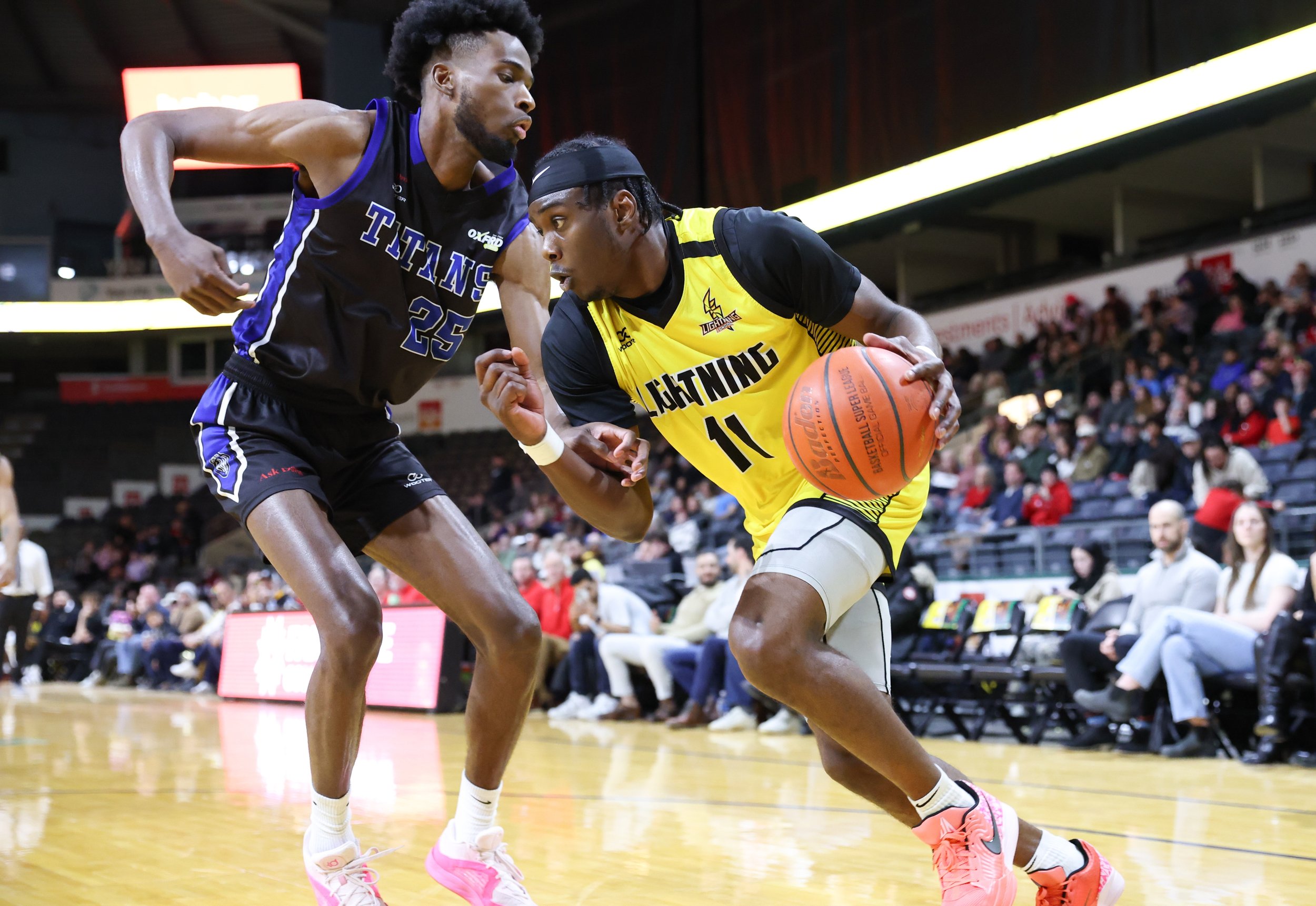

Knight Watch: After sweeping Owen Sound, London takes on the No. 5 Erie Otters in the second round of the OHL playoffs; Columnist Jake Jeffrey previews the matchup — and predicts the rest of the OHL series …